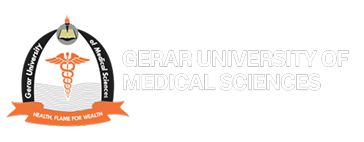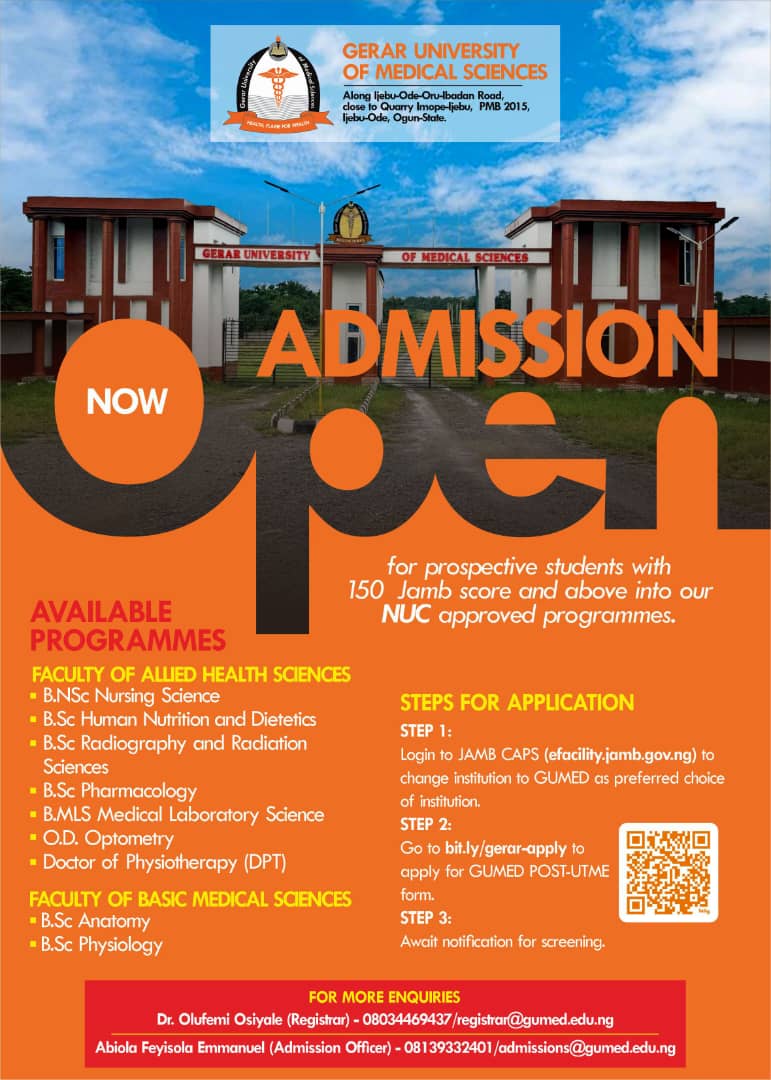
Medical Laboratory Science (MLS), also known as Clinical Laboratory Science, is a vital field
Hematology, Clinical Chemistry, Microbiology etc
Medical Laboratory Scientists provide critical data that support:
Medical Laboratory Science (MLS), also known as Clinical Laboratory Science, is a vital field within healthcare that focuses on the performance of laboratory tests and analyses to diagnose, treat, and monitor diseases. Medical Laboratory Scientists (MLSs) play a crucial role in the healthcare team by providing essential data that influence patient care decisions.

Imope, Local, Government Area, Ijebu Ode, Ogun State, Nigeria
Email: info@gumed.edu.ng
Tel: +234 812 630 7303
